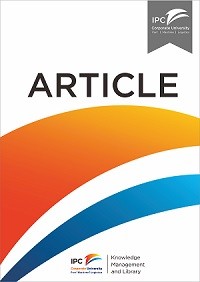Article
The U.S. Customs Modernization and Informed Compliance Act: Implications for the Logistics Pipeline
U.S. Customs administration plays an important role in the structure and efficiency of international logistics. The Customs Modernization and Informed Compliance Act was passed in December 1993 with the objective of improving the efficiency of the U.S. customs process. The principle logistics benefits for the trade community and the means by which they are to be accomplished include faster clearance and lower transaction costs via increased automation and remote entry, and decreased congestion at ports of entry via a reduction in the number and complexity of formal entries. These gains are offset somewhat because some traditional Customs responsibilities have been shifted to importers of record. This will increase their compliance costs and penalty risk exposure. The key changes presented in the act and potential implications for the parties involved in the importing process are described.
Ketersediaan
Informasi Detail
- Judul Seri
-
The International Journal of Logistics Management
- No. Panggil
-
ATC LO JON t
- Penerbit
- Sweden : Emerald Insight., 1995
- Deskripsi Fisik
-
16 p .
- Bahasa
-
English
- ISBN/ISSN
-
-
- Klasifikasi
-
LO
- Tipe Isi
-
-
- Tipe Media
-
-
- Tipe Pembawa
-
online resource
- Edisi
-
Vol. 6 Issue: 2, pp.67-82
- Subjek
- Info Detail Spesifik
-
-
- Pernyataan Tanggungjawab
-
Carolyn M. Jones Carr
Versi lain/terkait
Lampiran Berkas
Komentar
Anda harus masuk sebelum memberikan komentar

 Karya Umum
Karya Umum  Filsafat
Filsafat  Agama
Agama  Ilmu-ilmu Sosial
Ilmu-ilmu Sosial  Bahasa
Bahasa  Ilmu-ilmu Murni
Ilmu-ilmu Murni  Ilmu-ilmu Terapan
Ilmu-ilmu Terapan  Kesenian, Hiburan, dan Olahraga
Kesenian, Hiburan, dan Olahraga  Kesusastraan
Kesusastraan  Geografi dan Sejarah
Geografi dan Sejarah